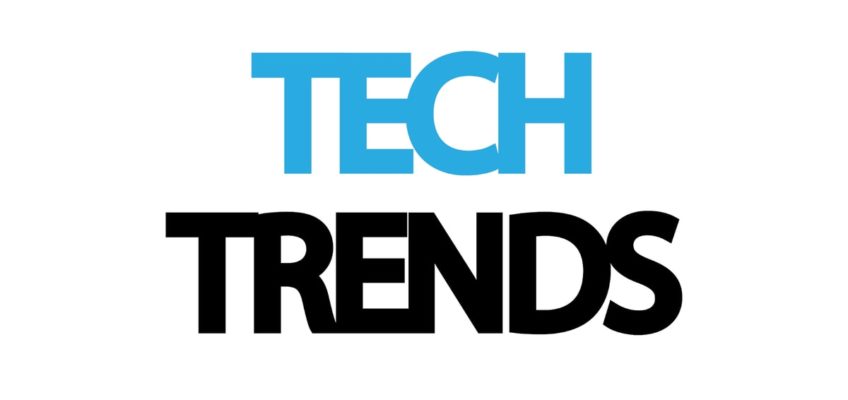As an avid Twitter user, I have been worried to see it struggle to conform to the expectations of its investors and shareholders.
In this Quartz article I set out the case for why those expectations are not only shortsighted but actually dangerous. Twitter is about much more than making a quick advertising buck, and if we – its community – don’t scramble to safeguard it, we could lose it.
Commercial pressure on Twitter may cause its community to lose what has become a vital service Share on X2016 has been a year of surprises and painful lessons that have taught us we must proactively defend what we value or face losing it in spectacular fashion. In 2017, Twitter’s future might matter more than you might think—and it hinges on keeping it in the hands (or, should we say, thumbs) of the public.
Twitter’s absence from US president-elect Donald Trump Dec 16’s meeting with top tech executives raised quite a few eyebrows. Despite using the social-media platform to regular and devastating effect throughout his campaign, Trump’s choice to not have Twitter CEO Jack Dorsey sitting at the table with the tech big kids draws the importance of the company into question. The Trump team defended their decision to exclude them by saying the platform—which claims 317 million monthly active users, though that figure is not entirely clear-cut—was “too small.” (There’s also a rumor Trump froze Twitter out in retribution over rejecting a custom emoji he wanted to run during the campaign.)
Sure enough, judging by criteria such as market cap ($13 billion compared to Amazon’s $363 or Apple’s $618), number of employees (a workforce less than a hundredth of the size of IBM’s), and revenue (they’re still operating at a net loss), Twitter seems to come up short compared to the other tech giants. But it holds some serious soft economic power: Recently, Trump wiped out billions of dollars in Lockheed Martin’s stock value with a single tweet.
Regardless of how much money the company does or doesn’t make, there are still millions of people who use and need Twitter Share on XTwitter might yet find ways of making money from its substantial user base and the huge amount of content and data it generates. But the network’s true calling arguably resides in giving people a voice who would otherwise have been ignored. In that context, it makes a lot more sense to think of Twitter as a public service rather than a dividends cash cow. Yet the constant pressure it’s under to monetize leaves it vulnerable to a takeover, which could question its future integrity and neutrality.
It makes a lot more sense to think of Twitter as a public service rather than a dividends cash cow. Twitter’s potential suitors—which include Disney, Salesforce, Alphabet, and Microsoft—continually frame the company in terms of commercial viability (or lack thereof) instead of its reach and influence as a media platform. For example, News Corp has been touted as a potential buyer, although they’ve officially denied it so far. If that did turn out to be true, what are the implications of its founder and executive chairman, Rupert Murdoch, openly endorsing Trump? In fact, there’s nothing to really stop Trump’s own company putting in their own bid, should they wish to.
Twitter is a unique platform in a very unique position Share on XRegardless of how much money the company does or doesn’t make, there are still millions of people who use and need Twitter. But if not through cash, how do we assign value to a platform through which the Pope (@Pontifex) chooses to ponder the rapidly declining state of our planet, and which allows little girls in Syria to reach JK Rowling? What price should we put on a tool that journalists, both professional and citizen, have come to rely on to source and disseminate news? If Twitter’s neutrality was to be jeopardized by a third-party purchase, we’d lose all that and so much more.
Over the past ten years, Twitter has become an essential service in global society—and as such, its future should be protected. But how?
Twitter might yet find ways of making money from user base and the huge amount of content and data it generates, but its true calling is arguably giving people a voice who would otherwise have been ignored. Share on XThere are interesting precedents for sponsoring media organizations and information platforms through various forms of public ownership, and these solutions could very well be adapted to Twitter. Here are three possible alternatives:
Shareholder cooperatives
What if Twitter’s users were to mobilize and take matters into their own hands? After all, Twitter is a publicly traded company, and since its 2013 IPO, anybody can buy shares. While there is a group of key stakeholders who own large portions of the platform, if enough individuals decided to invest and collectively organize, it could make a big difference to its future direction.
Nathan Schneider from the University of Colorado Boulder set out how that might work in a recent Guardian article, making the case that, much like the Green Bay Packers NFL team, Twitter should be run by (and for) its fans. There is now an (appropriately hashtagged) #wearetwitter campaign and petition urging Twitter to work with users to find a way for them to buy it and turn it into a cooperatively owned platform.
“Another suggestion comes from Tom McDonough,” Schneider writes, “a blogger with a history in capital markets, who proposes that less than 1% of users—no small number, at three million—could each buy $2,300 worth of shares and vote as a bloc for a transition to cooperative ownership. They’d then be paid back through the transition process, partly through a membership fee that could average to $10 each year. Rather than giving the company a blank check to sell your data, would you pay a co-ownership fee?”
Contribution-based model
The Wikimedia Foundation, which runs Wikipedia and campaigns for policy change, has managed to finance its operations through an extremely effective contribution-based model where users are asked to make regular donations. It also receives larger gifts like the $1 million contribution made earlier this year by Craigslist Founder Craig Newmark. Twitter could also follow this path.
Katherine Maher, the executive director of the Wikimedia Foundation, explains how this contribution model helps to build trust with the community and ensures the credibility of the information posted on the platform. “Nobody owns Wikipedia, so everybody owns it,” she says. “We’ve got these very strict guidelines and criteria that articles have to meet, but users take a collective responsibility for making sure it all works. Anybody can use, it, anybody can contribute, but it is all done in a very transparent way.”
The most important aspect of what Wikipedia does is not that its information is perfect, but that it is transparent. You can check the provenance of any piece of information by looking at every single edit ever made to a page. Snowden argued that a similar feature should be implemented on Twitter, allowing people to edit their tweets, but making it so that the edits were flagged, visible, and traceable, much like they are on Wikipedia. That transparency then empowers users to make informed decisions about the information they choose to trust, perhaps helping us to avoid the potentially disastrous dissemination of fake news we’ve seen with Facebook.
Since neutrality could not be ensured, there seems little point (and frankly very little hope of success) in governments attempting to start new Twitter-like platforms from scratch Share on XPublic ownership
It might seem counter-intuitive to suggest that some form of state funding might work for Twitter, especially considering that this would make it entangled in a very complex relationship with the next president. There are, however, many examples of publicly funded media platforms, such as NPR in the US and the BBC in the UK, that manage not only to thrive commercially but also to stand up to government forces and maintain their independence.
Some politicians have even argued for the creation of alternative nationalized platforms. For example, in his Digital Democracy Manifesto, the leader of the opposition in the UK, Jeremy Corbyn set out the need for a “Massive Multi-Person On-line Deliberation” platform to organize online meetings for individuals and communities to deliberate about pressing political issues and participate in devising new legislation.
As the New Statesman’s Amelia Tait pointed out, that “is Twitter. It’s just Twitter.”
But as neutrality could not be ensured, there seems little point (and frankly very little hope of success) in governments attempting to start new Twitter-like platforms from scratch. Instead, their financial support conceivably could be managed through 3rd-party collective organizations that transcend borders or the jurisdiction of any one government, much in the way that institutions such as NATO and the UN operate.
Twitter is a unique platform in a very unique position. Like Facebook, it isn’t a media company in the traditional sense, yet events such as Brexit and the US election leave no doubt as to its power and influence. We now need to figure out how to manage that power sustainably for the benefit of its users. That’s because Twitter’s unique problems are also a huge opportunity to bring the broader community into the conversation and give them a chance to have a say in the future of the company.
Twitter is failing as a public company, but there are other ways to keep this bird aloft https://t.co/AtfvWoCorM
— Quartz (@qz) December 21, 2016
Alice Bonasio is a VR Consultant and Tech Trends’ Editor in Chief. She also regularly writes for Fast Company, Ars Technica, Quartz, Wired and others. Connect with her on LinkedIn and follow @alicebonasio and @techtrends_tech on Twitter.









